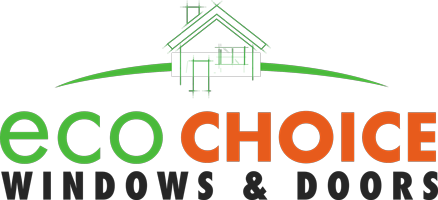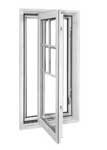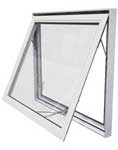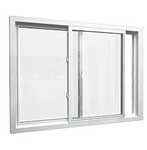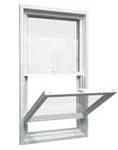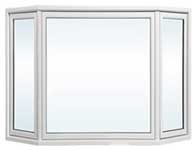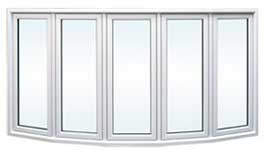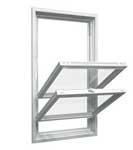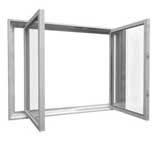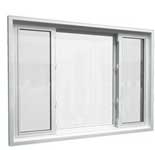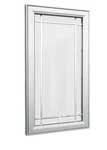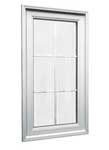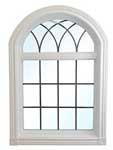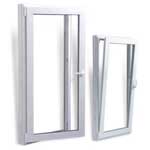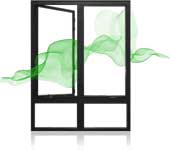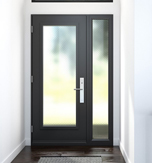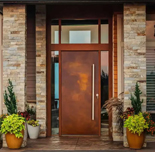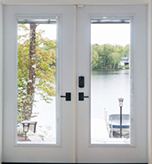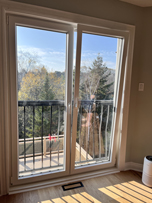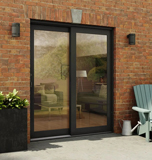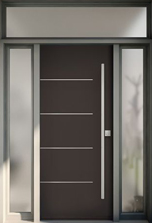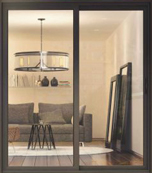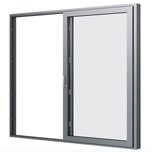In a time where sleek aesthetics and sustainable living are on the rise, modern aluminum windows have become a defining trend in architectural design. For the longest time, they have been decried for being energy inefficient, but while this opinion is prevalent, aluminum windows are now staging a triumphant comeback.
While there may have been a time when aluminum windows were considered less than stellar in terms of energy efficiency, advancements in technology and design have propelled them into the spotlight of eco-conscious choices. In this blog, we’ll debunk the myth surrounding aluminum windows, exploring the transformation that makes them a commendable and energy-efficient option for the modern homeowner. So, what makes modern aluminum windows energy efficient? Let’s find out.
What Are Aluminum Windows?
Aluminum windows are a contemporary and versatile window option characterized by frames made primarily of—you guessed it—aluminum! Renowned for their durability, sleek aesthetics, and adaptability to various architectural styles, these windows have become popular in modern construction and design.
The basic structure of aluminum windows involves frames crafted from lightweight yet robust aluminum alloys. This material offers a unique combination of strength and malleability, allowing for the creation of slim, elegant profiles that maximize the glass area, providing unobstructed views and ample natural light.
Aluminum windows can be found in various styles, including casement, sliding, awning, and fixed designs. Their popularity is due to their aesthetic appeal, low maintenance requirements and corrosion resistance, making them suitable for various climates.
Once overshadowed by concerns about energy efficiency, these windows have undergone a remarkable transformation thanks to cutting-edge technologies. In the past, aluminum’s conductivity made it less appealing in terms of insulation, contributing to the misconception that aluminum windows were not energy efficient. However, recent advancements have introduced innovative thermal breaks and insulating materials, mitigating heat transfer and significantly improving energy efficiency.
These technological upgrades have propelled aluminum windows into the forefront of sustainable choices, striking a balance between contemporary aesthetics and eco-conscious living.
What Makes Them So Energy Efficient?
The newfound energy efficiency of modern aluminum windows can be attributed to a combination of advanced technologies and design innovations. One key element is the integration of double glazing, a technique involving two glass layers with a space in between. This insulating layer is a barrier, reducing heat transfer and enhancing thermal performance. Coupled with low-emissivity (Low-E) coatings on the glass, which minimize the heat that can pass through, aluminum windows now boast significantly improved insulation capabilities.
The introduction of thermal breaks within the aluminum frame is another crucial factor. These breaks interrupt the conductive path of the metal, preventing the rapid transfer of heat or cold. This addresses one of the historical drawbacks of aluminum—its propensity to conduct temperature. The U-value and R-value are metrics that quantify a window’s thermal performance. A lower U-value and a higher R-value indicate better insulation and modern aluminum windows excel in optimizing these values.

In addition, meticulous attention to detail in the form of weather seals ensures a tight seal between the window components, preventing drafts and minimizing energy loss. The combination of these elements showcases how contemporary aluminum windows have successfully overcome past challenges, emerging as a leading choice for energy-efficient and sustainable home design.
What Are R and U Values?
The R-value, or thermal resistance, measures a material’s ability to resist heat flow. In the context of windows, it indicates how well a window can insulate against heat transfer. The higher the R-value, the better the insulation. It’s essentially the reciprocal of the U-value (R = 1/U). So, if a window has a high R-value, it has low thermal conductivity and is effective at preventing heat transfer.
Conversely, the U-value, or thermal transmittance, gauges the heat transfer rate through a material. Specifically, for windows, it measures how much heat can pass through the entire window assembly, including the frame, glass, and spacers. A lower U-value indicates better insulation properties. U-value is the reciprocal of R-value (U = 1/R). So, a window with a low U-value is more energy-efficient, allowing less heat to escape or enter.
In essence, R-value and U-value are two sides of the same coin, describing the thermal performance of a material or, in this case, a window. Homeowners often look for windows with high R-values or low U-values to ensure better energy efficiency and temperature control.
Other Qualities of Aluminum Window Frames
Beyond their energy efficiency, aluminum window frames possess a range of qualities that contribute to their popularity in modern construction and design:
- Durability: Aluminum is inherently corrosion-resistant, making it a durable choice for window frames. It withstands various weather conditions, ensuring a longer lifespan than other materials.
- Low Maintenance: Another quality of aluminum windows is that they are relatively low maintenance. They don’t require painting or sealing, contributing to a hassle-free upkeep routine for homeowners.
- Slim Profiles: Aluminum’s strength allows for the creation of slim and sleek window profiles. This design aesthetic is favoured in contemporary architecture, providing unobstructed views and a modern, minimalist look.
- Versatility: It is highly versatile, allowing for various window styles, including casement, sliding, awning, and fixed designs. This adaptability makes aluminum frames suitable for different architectural preferences and design needs.
- Recyclability: Aluminum is a highly recyclable material. This eco-friendly quality appeals to those looking for sustainable building practices, as aluminum can be recycled repeatedly without losing its quality.
- Affordability: Compared to other window frame materials such as wood or fibreglass, aluminum is often more cost-effective. This affordability can make it an attractive choice for budget-conscious homeowners.
- Modern Aesthetics: Aluminum frames’ sleek and contemporary appearance complements modern architectural styles. The clean lines and slim profiles create a sophisticated and stylish look.
ALSO READ:
Make Eco Choice Windows & Doors your choice for professional installation services.
Eco Choice Windows & Doors is a leading supplier and installer of quality windows and doors. We have been in business for over 15 years, installing windows and doors for many satisfied customers across the province.
We have the knowledge, experience and expertise to recommend the windows and doors that best suit your needs. Simply put, we supply the best quality products, expertly installed and built to enhance energy efficiency throughout the home.
Call us today at (416) 690-9992 or complete our convenient online form to book your free, no-obligation consultation to find the right energy-efficient windows for your home!
FAQs About Modern Aluminum Windows
Yes, modern aluminum windows are energy-efficient. Technological advancements, such as thermal breaks, double glazing, and Low-E coatings, have significantly improved their insulation properties.
No, aluminum windows are low-maintenance. They don’t need painting or sealing; their corrosion resistance contributes to their durability and longevity.
Absolutely! Aluminum is a versatile material, allowing for the creation of various window styles to suit different architectural preferences.
Yes, aluminum is highly recyclable, making it an eco-friendly choice. It can be recycled repeatedly without losing its quality.
Aluminum windows are often more cost-effective than materials like wood or fibreglass, making them an attractive choice for those on a budget.
While some experienced individuals may opt for DIY installation, it’s generally recommended to have aluminum windows installed by professionals to ensure proper fit, performance, and warranty coverage.
